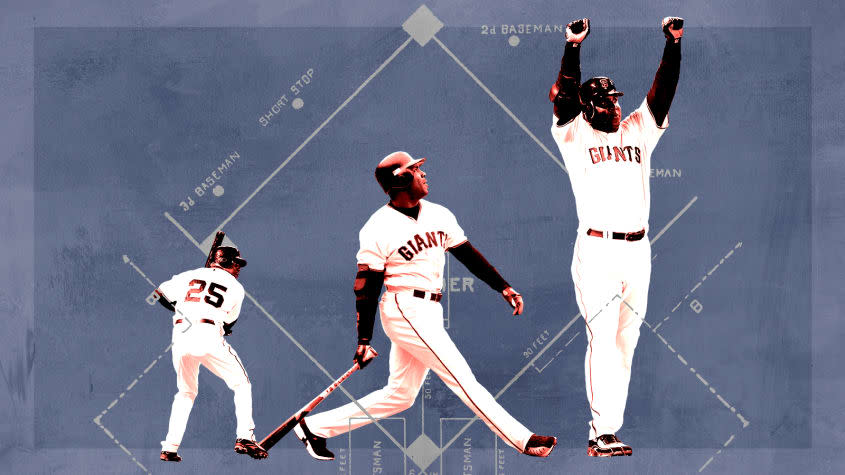Barry Bonds doesn't need the Hall of Fame

The votes are in. The Boston Red Sox (and earlier Minnesota Twins) slugger David Ortiz is in the Baseball Hall of Fame. San Francisco Giants (and earlier Pittsburgh Pirates) star Barry Bonds is not.
On paper, that makes little sense. Ortiz was a successful designated hitter who played a leading role in the reversal of fortune the historically second-rate Red Sox enjoyed in the 21st century. But Bonds was the greatest ballplayer of his, and maybe any, generation. A 22-year veteran, he played on 14 All-Star Teams, received seven Most Valuable Player Awards, eight Gold Glove Awards, and holds the MLB records for total home runs and for home runs in a single season.
The outcome wasn't about what Bonds did on the field, though. Along with pitcher Roger Clemens and others that Hall voters denied, Bonds is being punished for his behavior in baseball's steroids era. Other players, including Ortiz, tested positive for performance-enhancing drugs when the league began to impose systematic testing in the early 2000s. But only Bonds faced charges for perjury and obstruction of justice related to a federal investigation.
The question is how much that should matter. There is little dispute that doping was common during the 1990s prime of Bonds' career. Like the players who appeared before a 2005 Congressional committee, Bonds was the focus of attention because he was a star rather than because his behavior was unusual.
To be sure, Bonds was not forthcoming with investigators. Yet the perjury charges against him were dropped and Bonds' conviction for obstruction of justice was overturned on appeal. Bonds' critics might point out that the Hall is entitled to apply a higher standard than avoiding criminal liability. Still, it's hard to avoid the conclusion that Bonds has been the scapegoat for conduct that was, at minimum, tolerated by the league until late in his career.
Bonds' personal demeanor has something to do with that, too. While Ortiz was beloved by fans, reporters, and players alike, Bonds kept his distance from the public, the media, and his own teammates. Some observers attributed Bonds' antisocial reputation to shyness, others to competitive pressure, and yet others to unfair expectations that Black players be humble and gregarious. Whatever the cause, plenty of other difficult men (and some who were truly awful) are honored in Cooperstown.
Due to a 10-year time limit for eligibility, this was Bonds' final opportunity to enter the Hall of Fame. Unless the rules are changed, that institution will permanently exclude one of the game's greatest players. Fans won't forget Bonds, though. Lacking a memorial plaque, his achievements will speak for themselves.
You may also like
Stephen Colbert's Late Show ropes Peppa Pig into Peloton's dead TV character mess
Senate candidate J.D. Vance defends caustic jokes because 'our country's kind of a joke'
Late night hosts joke about great NFL playoffs, terrible RFK Jr. Nazi analogies

 Yahoo Sports
Yahoo Sports 